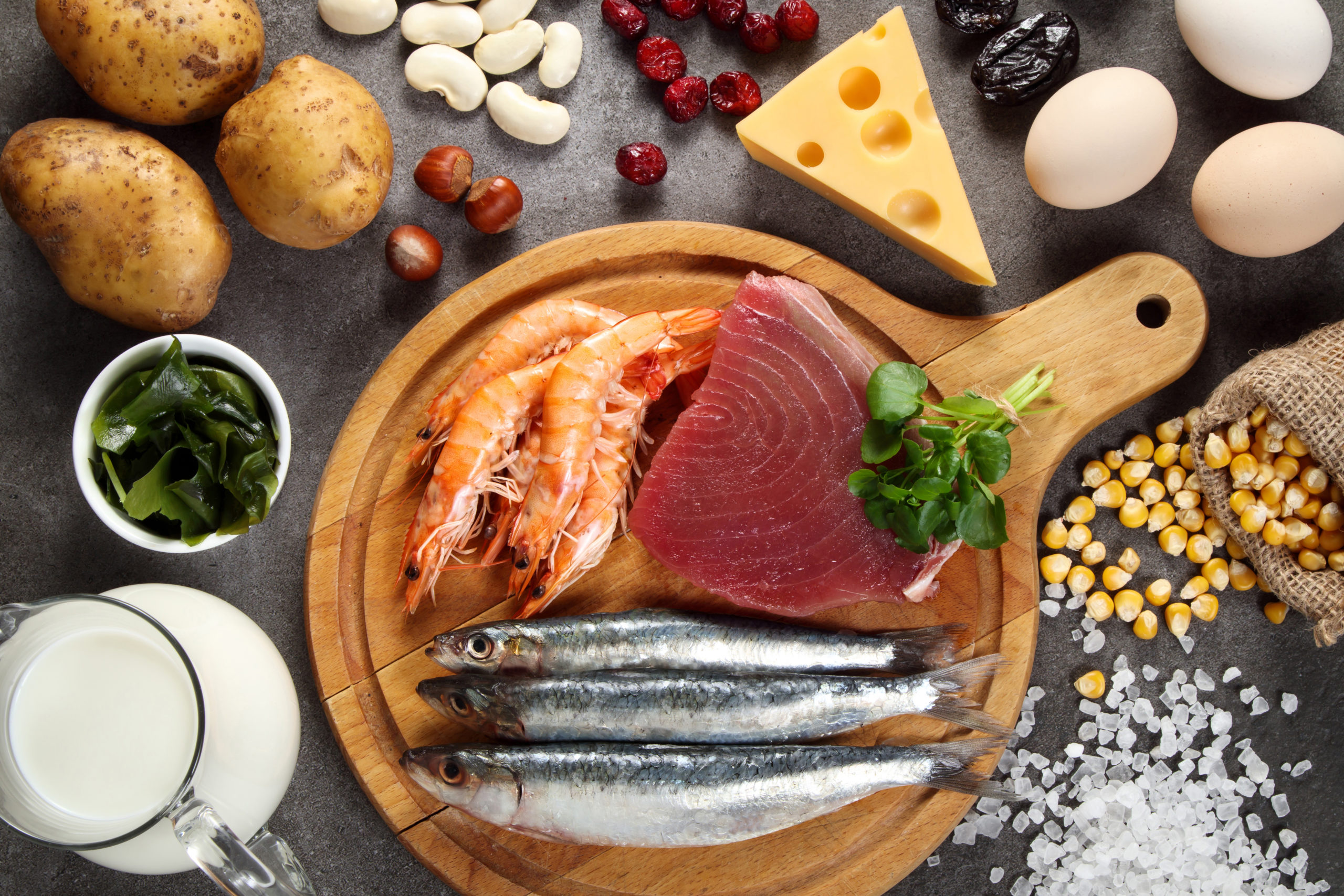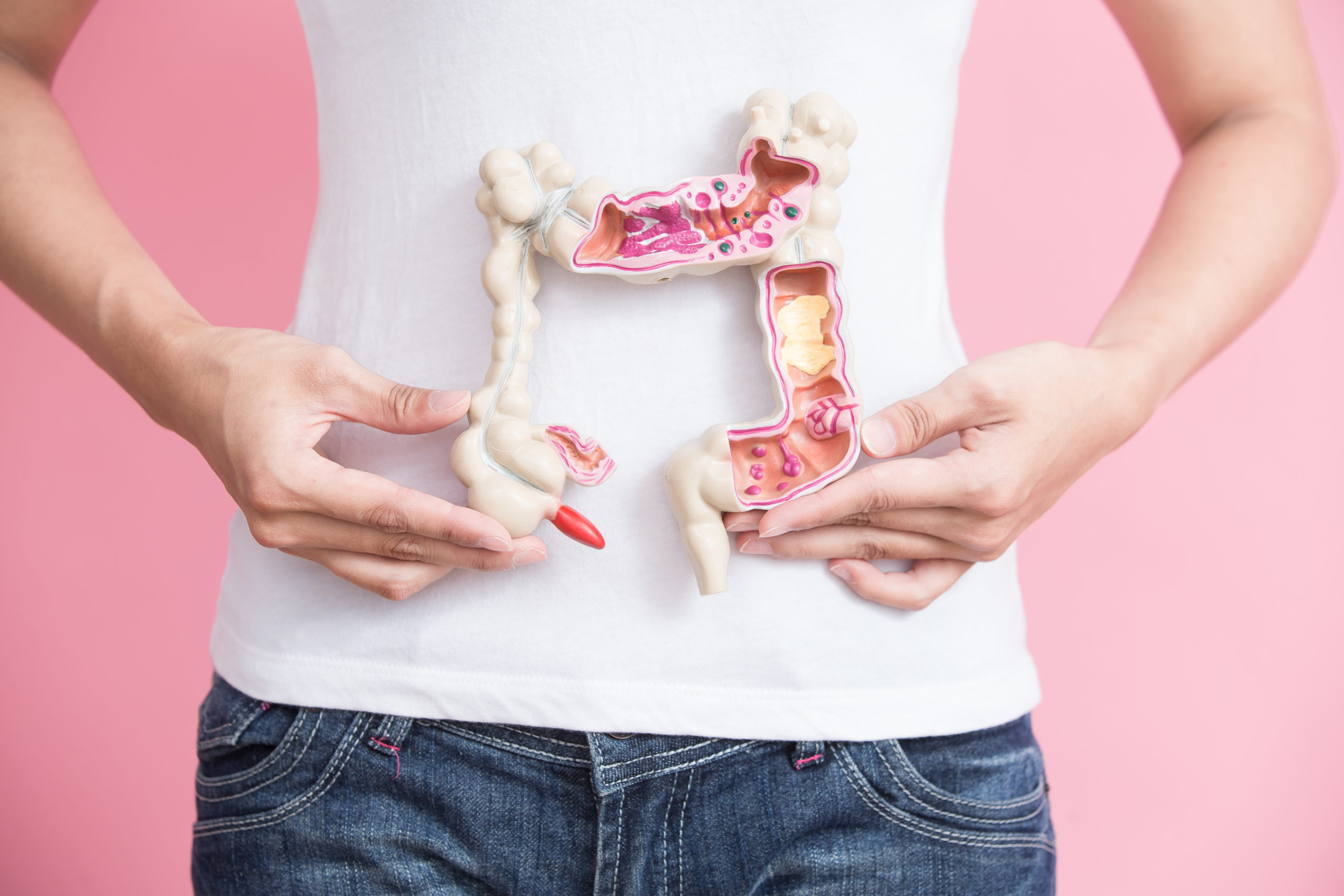
What Is Iodine?
What Is Iodine And What Does It Do?
Iodine is a mineral found in some foods. The body needs this mineral to make thyroid hormones. These hormones control the body’s metabolism and many other important functions. The body also needs thyroid hormones for proper bone and brain development during pregnancy and infancy. Getting enough iodine is important for everyone, especially infants and women who are pregnant.
What Foods Provide Iodine?
This mineral is found naturally in some foods and is also added to salt that is labeled as “iodized”. You can get recommended amounts of iodine by eating a variety of foods, including the following:
- – Fish (such as cod and tuna), seaweed, shrimp, and other seafood, which are generally rich in this mineral
- – Dairy products (such as milk, yogurt, and cheese) and eggs, which are also good sources
- – Iodized salt, which is readily available in the United States and many other countries*
*Processed foods, such as canned soups, almost never contain iodized salt. In addition, specialty salts, such as sea salt, kosher salt, Himalayan salt, and fleur de sel, are not usually iodized. Product labels will indicate if the salt is “iodized” or provides iodide.
What Kinds Of Dietary Supplements Are Available?
Iodine is available in dietary supplements, usually in the form of potassium iodide or sodium iodide. Many multivitamin-mineral supplements contain the mineral as well. Dietary supplements of iodine-containing kelp (a seaweed) are also available.
Iodine supplements are available in our online Biote store.
Am I Getting Enough Iodine?
Most people in the United States get enough iodine from foods and beverages. However, certain groups of people are more likely than others to have trouble getting enough:
- – People who do not use iodized salt. Adding iodine to salt is the most widely used strategy to control iodine deficiency. Currently, about 88% of households worldwide use iodized salt.
- – Pregnant women. Women who are pregnant need about 50% more iodine than other women to provide enough of the mineral for their baby. Surveys show that many pregnant women in the United States may not get quite enough, although experts do not know whether this affects their babies.
- – People who follow a vegan diet or who eat few or no dairy products, seafood, and eggs. Seafood, eggs, milk, and milk products are among the best sources. People who don’t eat much of these foods or don’t eat them at all might not get enough of the mineral.
- – People living in regions with iodine-deficient soils who eat mostly local foods. These soils produce crops that have low iodine levels. Among the regions with the most iodine-poor soil are mountainous areas, such as the Himalayas, the Alps, and the Andes regions, as well as river valleys in South and Southeast Asia.
- – People who get marginal amounts of iodine and who also eat foods containing goitrogens. Goitrogens are substances that interfere with the way the body uses this mineral. They are present in some plant foods including soy, and cruciferous vegetables such as cabbage, broccoli, cauliflower and brussels sprouts. For most people in the United States who get adequate amounts of the mineral, eating reasonable amounts of foods containing goitrogens is not a concern.
What Happens If I Don’t Get Enough?
Iodine deficiency is uncommon in the United States and Canada. People who don’t get enough of the mineral cannot make sufficient amounts of thyroid hormone. This can cause many problems. In pregnant women, severe iodine deficiency can permanently harm the fetus by causing stunted growth, intellectual disability, and delayed sexual development. Less severe iodine deficiency can cause lower-than-average IQ in infants and children and decrease adults’ ability to work and think clearly. Goiter, an enlarged thyroid gland, is often the first visible sign of deficiency.
Can It Be Harmful?
Yes, if you get too much. Getting high levels of the mineral can cause some of the same symptoms as iodine deficiency, including goiter (an enlarged thyroid gland). High intakes can also cause thyroid gland inflammation and thyroid cancer. Getting a very large dose of it (several grams, for example) can cause burning of the mouth, throat, and stomach; fever; stomach pain; nausea; vomiting; diarrhea; weak pulse; and coma.
Connect With Us
Iodine supplements are available in our online Biote store.
Questions or concerns? Please contact our office directly.
Be sure to check our blog regularly for new posts, and follow us on Facebook and Instagram @PeterMLotzeMD for health and wellness tips and more!
Check out our new online wellness store for other supplements, vitamins, personal care products, and more.
To learn more, visit the National Institutes of Health Office of Dietary Supplements website.



